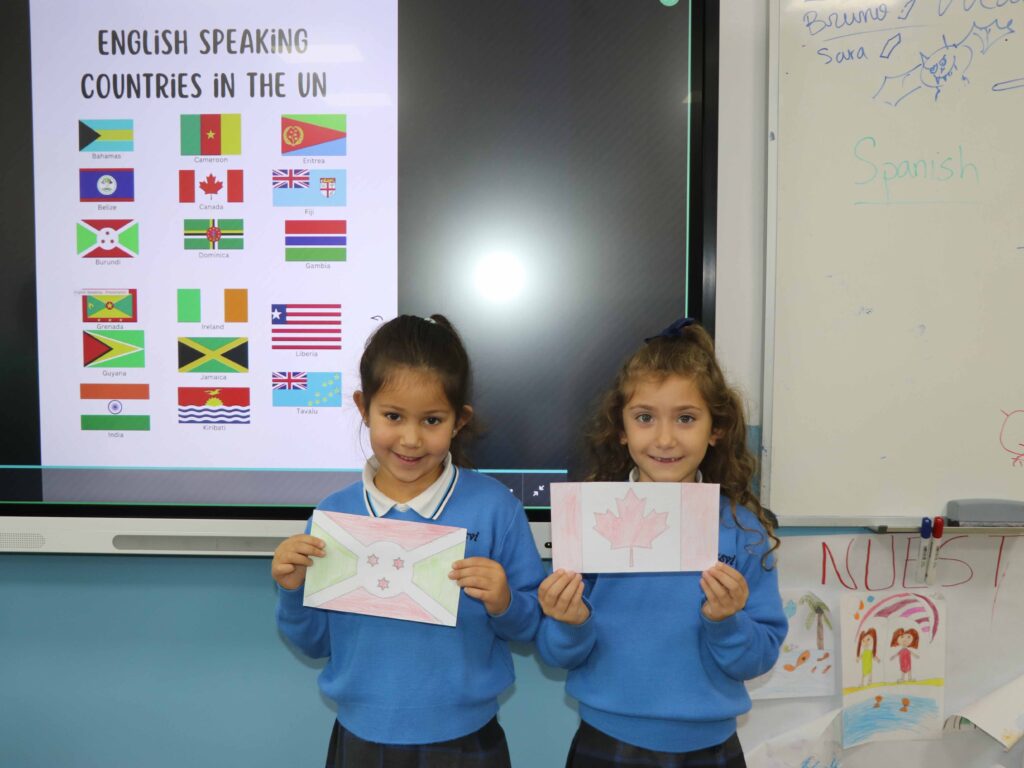What is the importance of learning English today? In a globalised world, speaking English is no longer an advantage, but a necessity. English is the language of science, technology, business and international communication. Learning English from an early age can open doors to academic and professional opportunities. It can also facilitate interaction in a multicultural environment.
WHAT IS THE IDEAL AGE TO START LEARNING ENGLISH?
Studies show that brain plasticity in the first years of life facilitates language learning in a natural way. As we grow older, this capacity decreases, making the process more complex.
Delaying English language learning may mean greater difficulty in becoming fluent in the future. It can also limit academic and career opportunities. In addition, lack of early exposure can lead to fear of speaking English, affecting confidence and communication in the language.

WHAT ARE THE BEST STRATEGIES TO IMPROVE LEARNING IN ENGLISH FROM AN EARLY AGE?

To ensure effective English language learning, it is essential to implement appropriate strategies that are adapted to each child’s stage of development. Some of the most recommended strategies are:
- Natural and playful learning: Children learn best when English is integrated into their daily lives in a fun way, through games, songs and interactive activities.
- Language immersion: Exposing children to everyday situations in English helps them to become familiar with the language spontaneously and without pressure.
- Audiovisual material: Cartoons, stories and audio books in English encourage active listening and effortless recognition of grammatical structures.
- Confident atmosphere: Avoiding over-correction and encouraging free expression helps overcome the fear of speaking English and builds self-esteem.
WHAT ARE THE BENEFITS OF BEING BILINGUAL IN ENGLISH?
Being bilingual in English offers numerous benefits, both personally and professionally. These include:
- Cognitive enhancement: Bilingualism is associated with greater cognitive flexibility, better problem-solving skills and greater creativity.
- Academic and professional opportunities: Fluency in English can open doors to study at international universities and jobs in global companies.
- Social interaction: Facilitates communication with people of different cultures and nationalities, enriching personal and professional experience.

HOW CAN CHILDREN BE MOTIVATED TO LEARN ENGLISH?
Motivating children to learn English can be a challenge, but there are several strategies that can help:
- Create a positive atmosphere: Encourage curiosity and interest in the language through fun and relevant activities.
- Set achievable goals: Celebrate small achievements and progress to maintain motivation.
- Involve the family: Integrate learning in English into family activities, such as watching films or reading books together.
“Learning another language is not just learning different words for the same things, but learning another way of thinking about things”.
HOW TO OVERCOME THE FEAR OF LEARNING ENGLISH?
Fear of learning English is common, but can be overcome with practice and support. Some strategies include:
- Create an atmosphere of trust: Encourage free expression and avoid over-correction.
- Practice regularly: Engage in conversations in English on a frequent basis to gain confidence.
- Use interactive resources: Take advantage of applications and platforms that offer conversational practice in a safe environment.
“A language puts you in a corridor for the rest of your life. Two languages open every door along the way”.
QUALITY ENGLISH LEARNING IN CASVI VILLAVICIOSA
At Casvi Villaviciosa International School, we understand the importance of multilingual education from the earliest years of life. Our language programme follows the best methodologies so that children acquire the language in a natural and progressive way. Not only English from the first cycle of Preschool Education. We also offer Chinese and German from 5th Primary School onwards.
With international educators, a hands-on approach and innovative learning experiences such as our Language Exchanges with schools around the world, we prepare our students for a world without borders.

